In the first half of 2025, European tech companies raised €33.7 billion across 1,941 deals. Energy tech stood out, closing 110 deals (about 5.7% of activity) worth €3.5 billion (roughly 10.4% of total funding), underscoring the sector’s growing role in Europe’s shift to a sustainable economy.
Energy financing followed a clear two-track pattern. On one track, mature, revenue-backed businesses drew large checks to deploy infrastructure at scale (especially motorway fast-charging networks and grid-level batteries), often funded with debt and project finance suited to predictable cash flows. On the other hand, capital backed the next wave of decarbonization, including hydrogen (from production to refuelling), sustainable aviation fuels, and e-fuels for hard-to-electrify sectors, as well as a broadening battery ecosystem that spans new materials, analytics, and circularity.
The ten largest energy deals of the first half of the year capture this balance, pairing the immediate rollout of clean infrastructure with longer-term bets on breakthrough technologies.
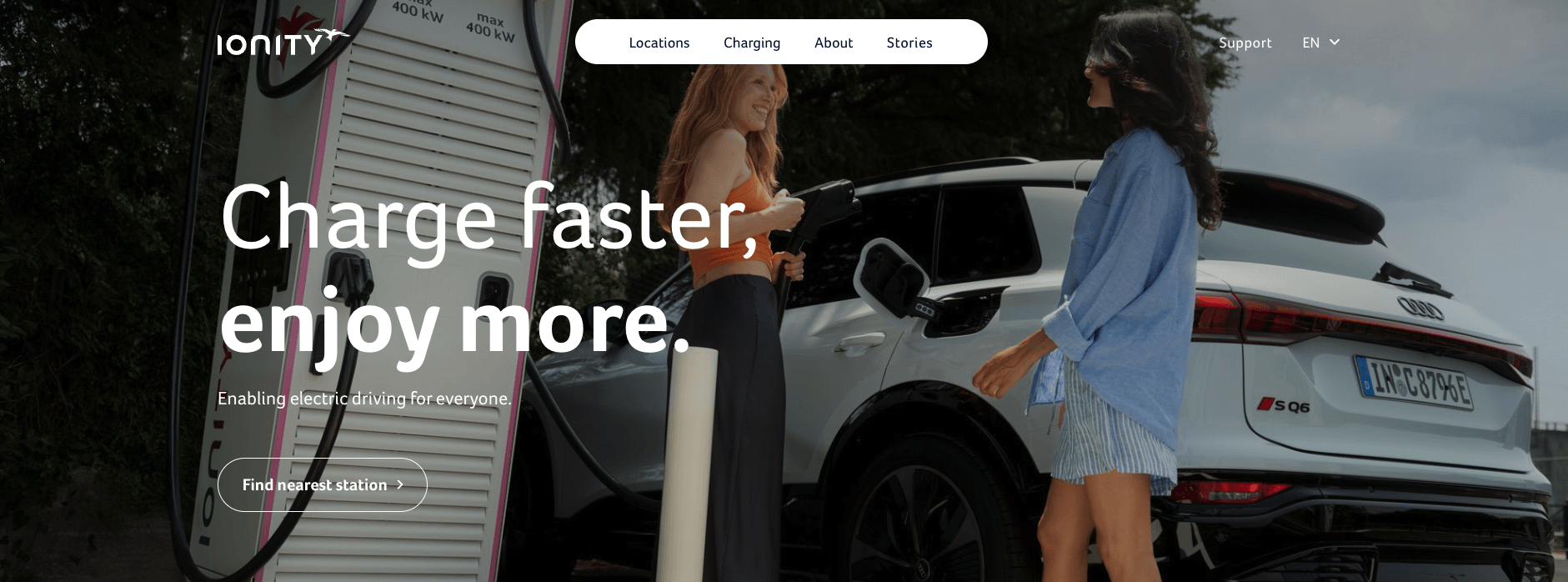
IONITY (Germany)
Amount raised in H1 2025: €600M
IONITY is a European electric vehicle charging network offering fast, reliable, and accessible high-power charging across Europe.
Its network spans 776 locations across 24 countries. Through its app and subscription models (e.g. IONITY Power, Motion, and Go), the company enables EV drivers to charge efficiently and cost-effectively.
In May, the company secured €600 million in funding to accelerate its growth, aiming to expand to over 13,000 charging points by 2030 and deliver a far more extensive energy supply network.
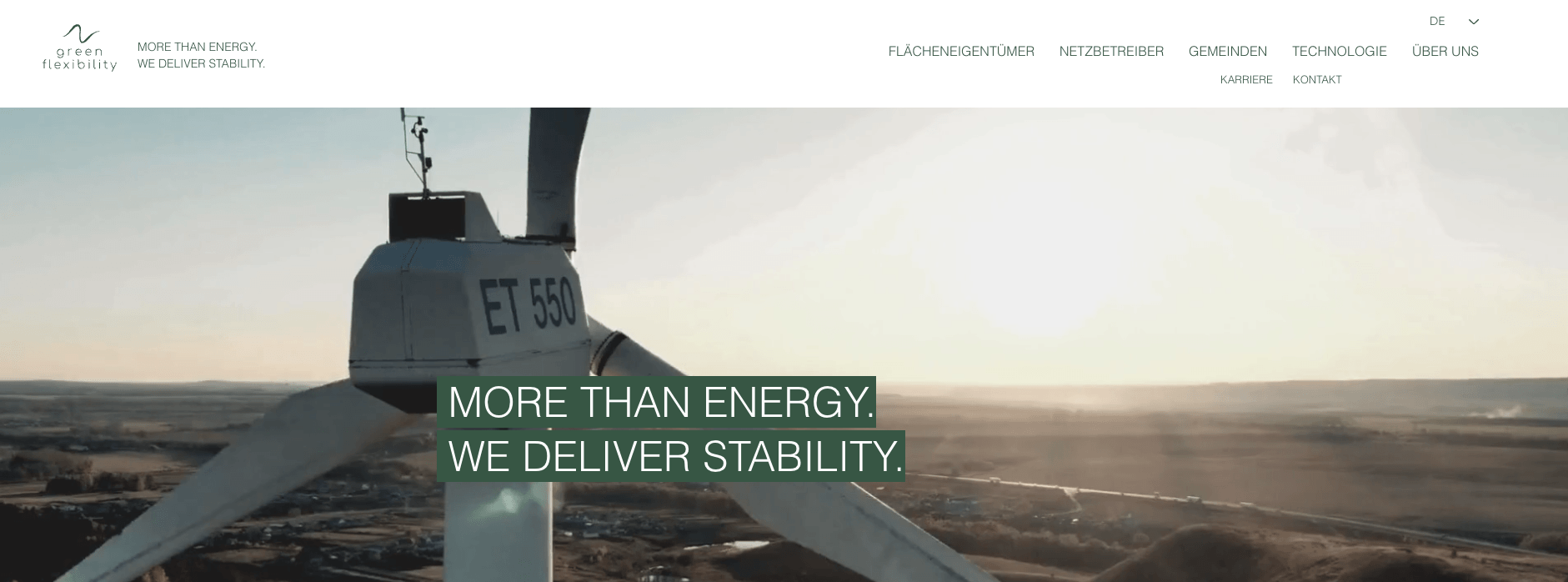
Green Flexibility (Germany)
Amount raised in 2025: €400M
Green Flexibility develops, builds, and operates large-scale battery storage systems across Europe, managing projects end to end, from site selection through long-term operation.
As a pioneer in grid flexibility, it integrates local grid requirements and energy market strategies to stabilise supply, absorb excess renewable power, and support sustainable grid infrastructure. Their team draws on over 100 years of cumulative energy sector experience to deliver stable, flexible, and efficient energy solutions.
In January, Green Flexibility received over €400 million in funding to help meet the increasing demand for grid stability and flexibility through battery storage and to actively drive the energy transition.
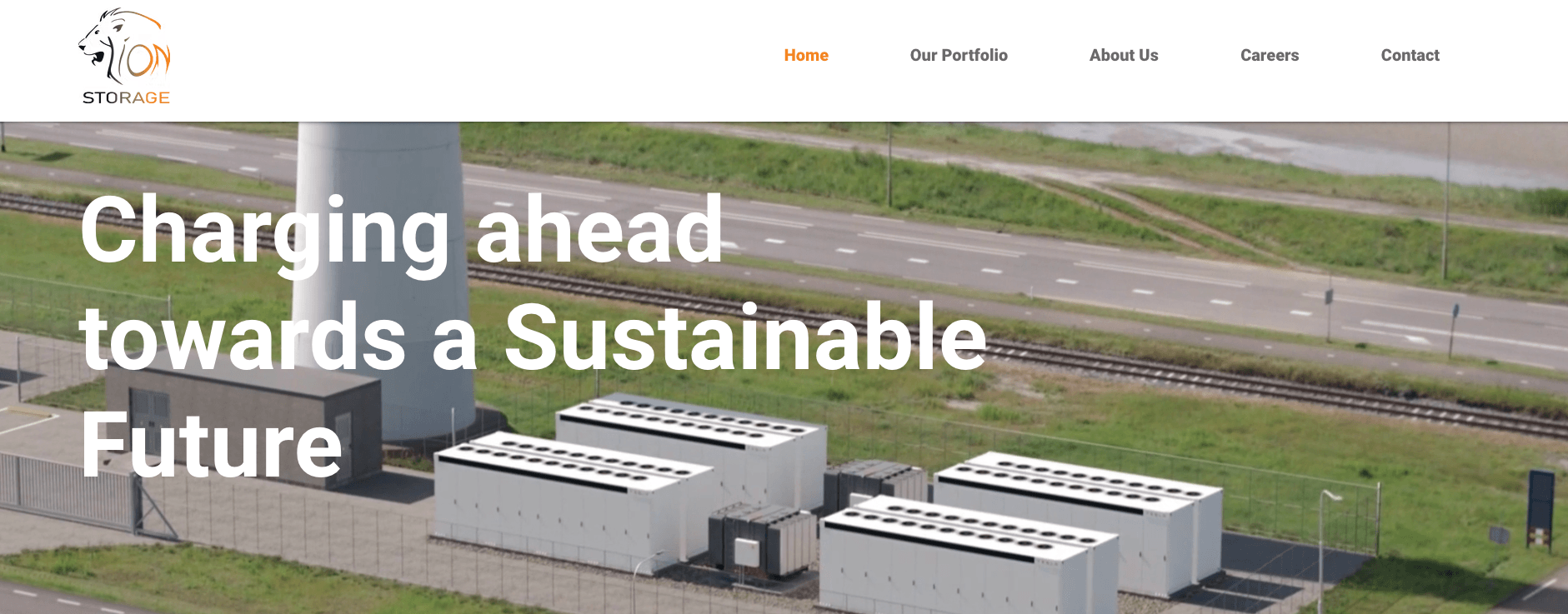
Lion Storage (Netherlands)
Amount raised in 2025: €350M
Lion Storage develops, builds and manages utility-scale battery energy storage systems connected directly to high-voltage grids.
Its systems, typically sized at 100 MW+ and lasting ~4 hours, help balance the grid, support congestion control, shift renewable energy from surplus to demand times, and stabilise power supply.
Based in The Hague, Netherlands, the company is deploying a portfolio of projects exceeding 1 GW in capacity.
Lion Storage secured €350 million in February to finance “Mufasa,” one of Europe’s largest battery storage projects.
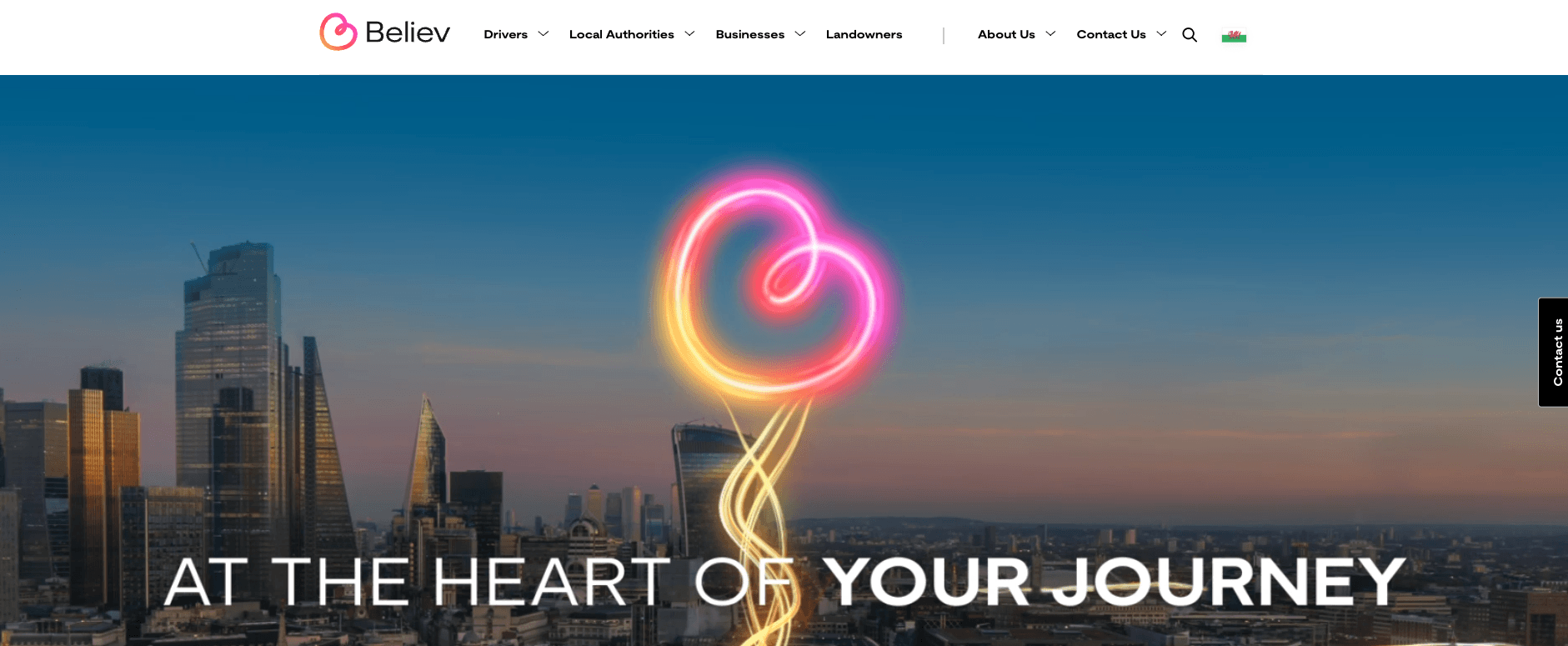
Believ (UK)
Amount raised in 2025: £300M
Believ is a UK-based electric vehicle charging operator dedicated to building a reliable, accessible public charging network powered by 100% renewable energy.
Founded in 2021, the company works with local authorities, businesses, and landowners to deploy charging infrastructure at zero cost to taxpayers. Believ offers fast and rapid charging options across the UK.
In June, Believ secured a £300 million investment facility to install at least 30,000 charge points, boosting access to public EV charging across the UK.
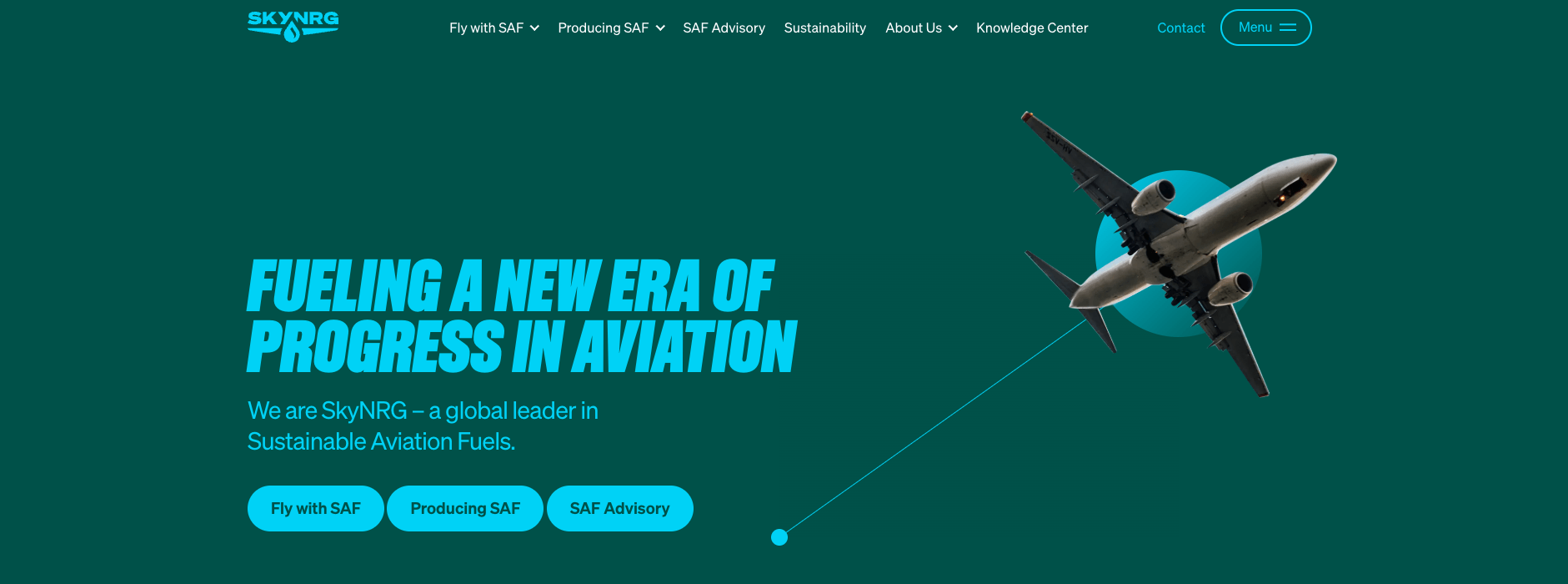
SkyNRG (Netherlands)
Amount raised in 2025: €250M
SkyNRG is a leader in Sustainable Aviation Fuel (SAF), working to accelerate aviation’s shift towards low-carbon fuels.
The company sources, blends, and distributes SAF globally and is developing dedicated production plants in Europe and the US to scale capacity. Certified by RSB and CORSIA, and operating under rigorous sustainability oversight (including an independent Sustainability Board), SkyNRG is committed to enabling the aviation industry’s 2050 net-zero goals.
In May, the company secured €250 million to build SAF plants in the Netherlands, Sweden, and the US.
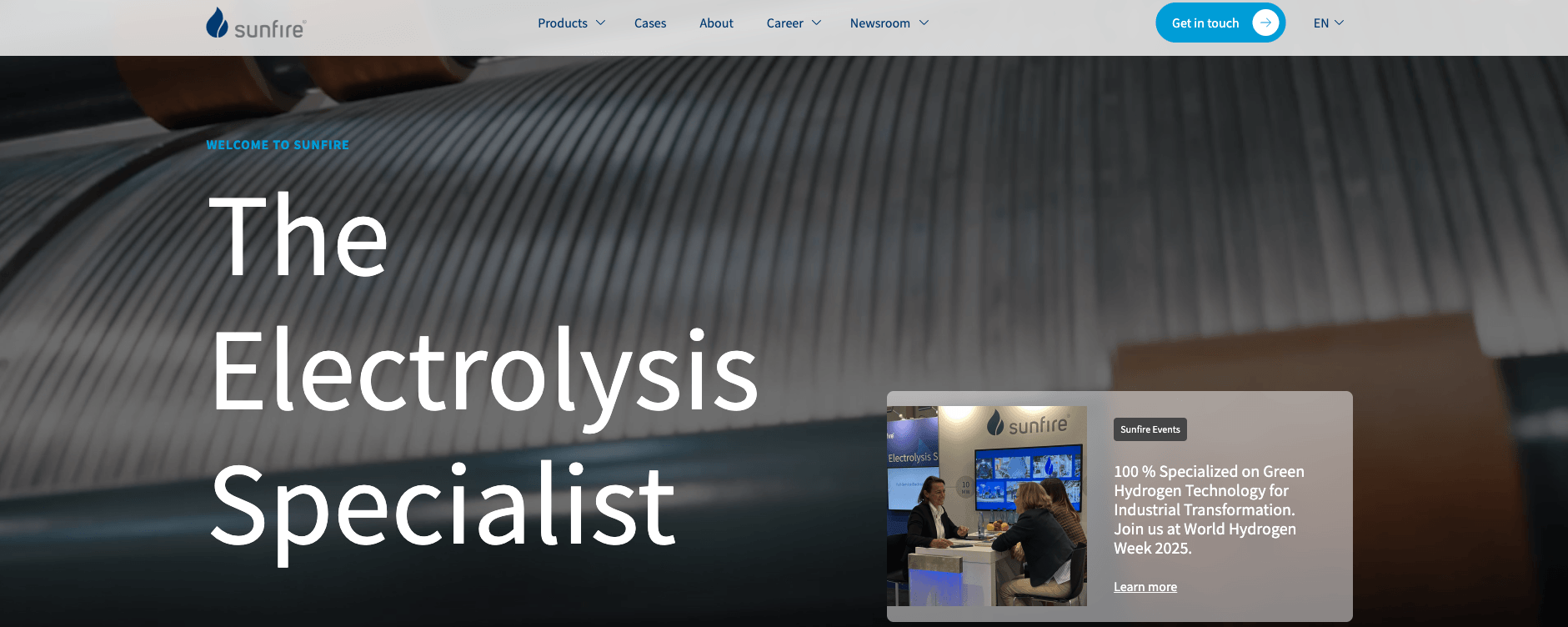
Sunfire (Germany)
Amount raised in 2025: €200M
Sunfire is a company focused on green hydrogen technologies and electrolysis solutions.
They develop and manufacture both alkaline (AEL) and solid oxide (SOEC) electrolyzers under their HyLink product line, targeting industrial transformation toward a fossil-free energy system. Their offerings aim to help decarbonise heavy industry, integrate renewable power, and scale up hydrogen production for energy and chemical sectors.
In January, Sunfire received €200 million to develop the hydrogen market.

Lhyfe (France)
Amount raised in 2025: €149M
Lhyfe is a European pioneer in green hydrogen, producing and supplying renewable hydrogen with zero CO₂ emissions.
Founded in 2017 by Matthieu Guesné, it deploys modular production units (onshore, on-site, offshore) directly connected to renewable energy sources to serve mobility and industrial needs. Its ambition is to reverse the fossil-based model and become a “green unicorn” by avoiding the emission of 1 billion tonnes of CO₂.
In April, Lhyfe received a €149 million grant from the French government for its future green hydrogen production plant located near the Grand Canal of Le Havre.
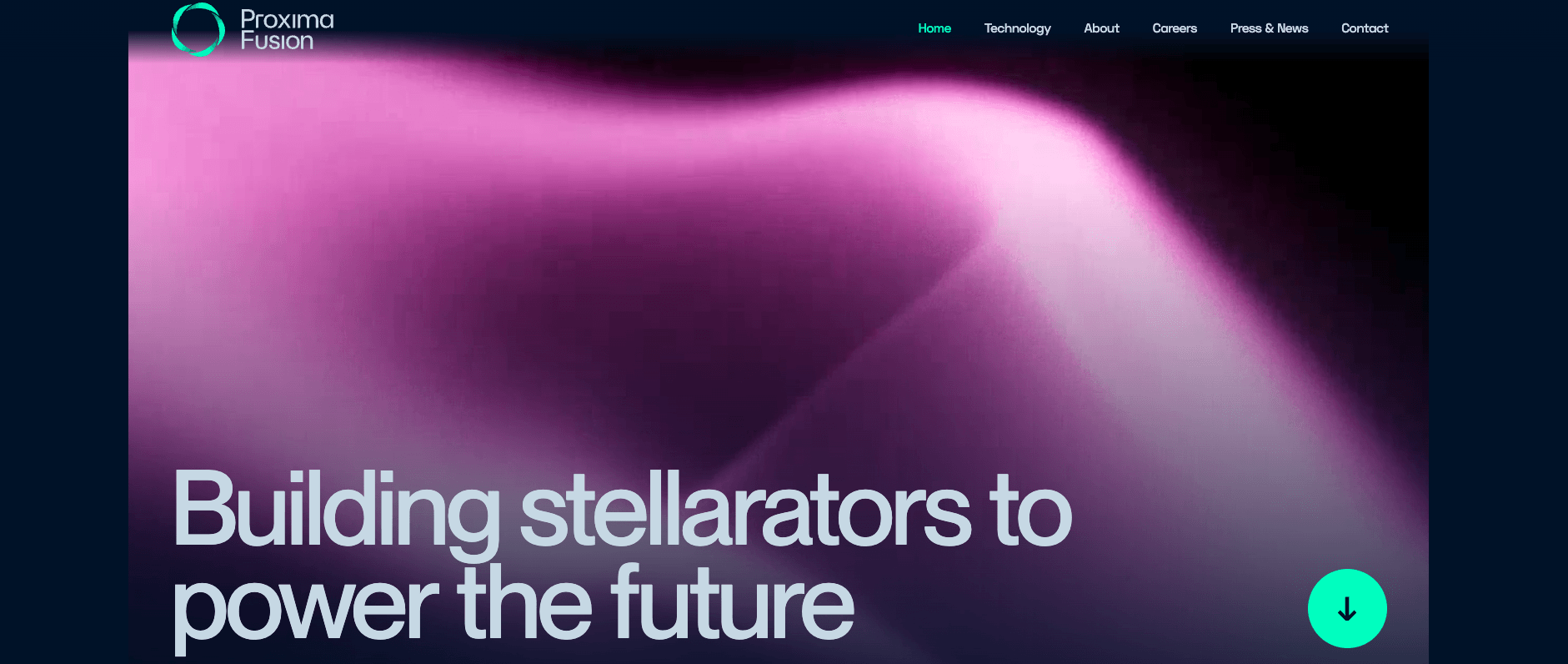
Proxima Fusion (Germany)
Amount raised in 2025: €130M
Proxima Fusion is a fusion energy company building the first generation of commercial fusion power plants using quasi-isodynamic (QI) stellarators.
Leveraging advances in magnetic confinement, high-temperature superconductors, and simulation-driven design, Proxima aims to bring fusion energy onto the grid safely and continuously. Its roadmap includes the Stellaris power-plant concept and a demonstration stellarator, Alpha, targeted to achieve net energy by 2031.
Proxima Fusion secured €130 million in Series A funding in June, which will be used to advance the company’s stellarator technology and speed up development of the world’s first commercial fusion power plant.
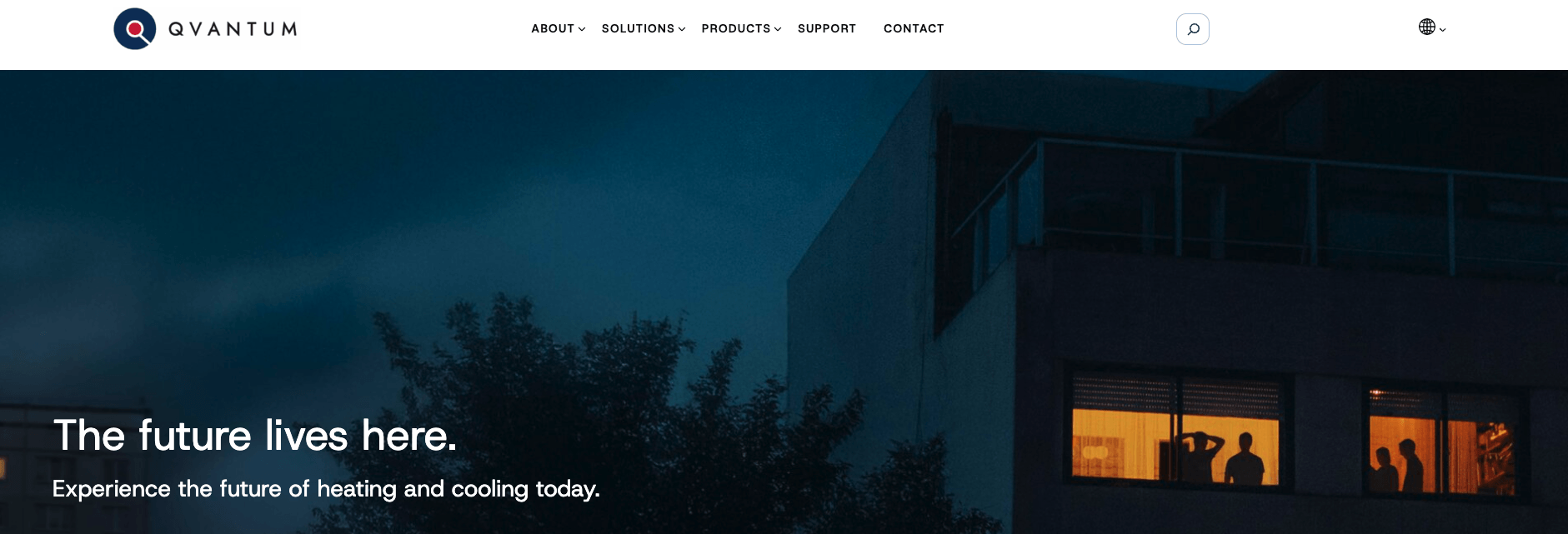
Qvantum (Sweden)
Amount raised in 2025: €108M
Qvantum is a company that designs and manufactures advanced heat pumps and energy systems to promote sustainable, fossil-free living.
Their products use ultra-low GWP refrigerants and are built for residential, light-commercial, and multi-unit applications (e.g. the QA, QH, and QE series).
With sustainability at its core, Qvantum aims to provide heating, cooling and hot water solutions with low environmental impact.
Qvantum closed a €108 million Series C funding round in January, enabling the company to move into its next phase of expansion.
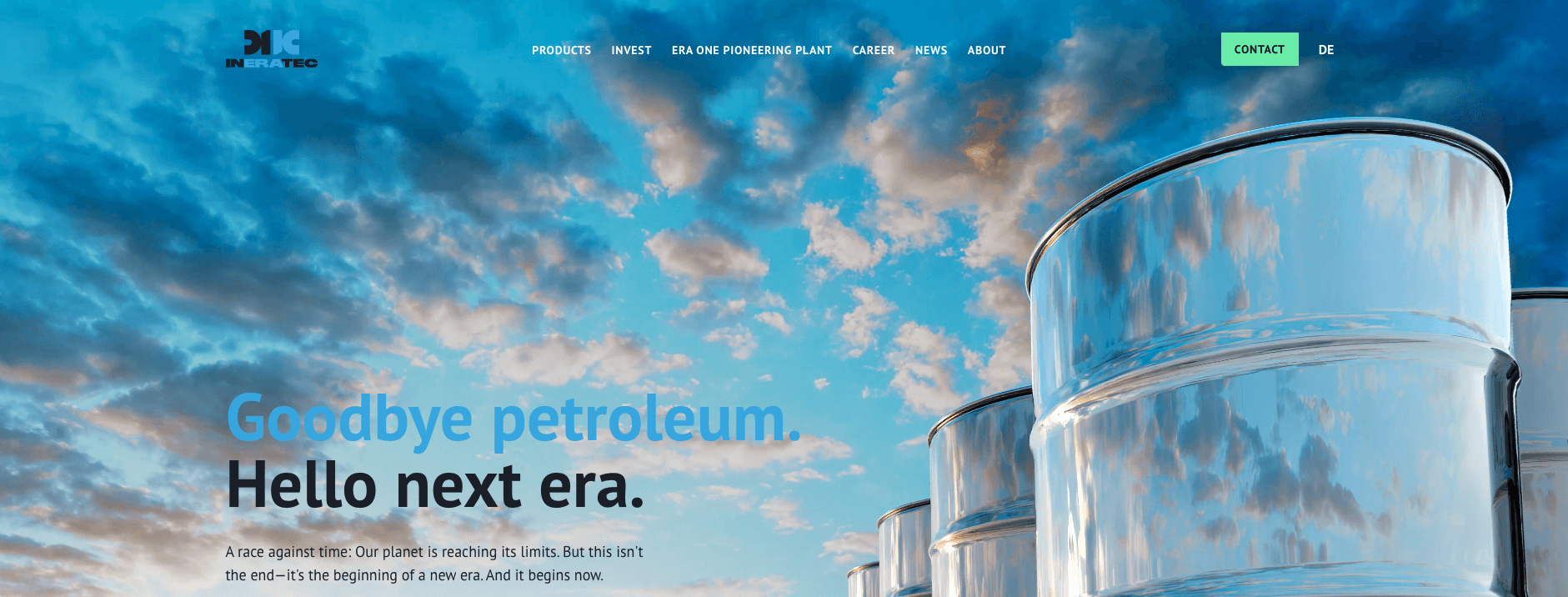
Ineratec (Germany)
Amount raised in 2025: €70M
Ineratec is a company that designs, builds, and operates modular power-to-X plants to convert renewable hydrogen and captured CO₂ into carbon-neutral e-fuels and e-chemicals.
The company aims to replace fossil crude by enabling scalable synthetic fuels (e.g. e-SAF, e-diesel, methanol) for transportation and hard-to-decarbonise sectors.
In January, the company secured a €70 million funding package to support its carbon-neutral e-fuel plant in Frankfurt, set to become Europe’s largest upon opening in 2025, as well as additional R&D initiatives.


Would you like to write the first comment?
Login to post comments